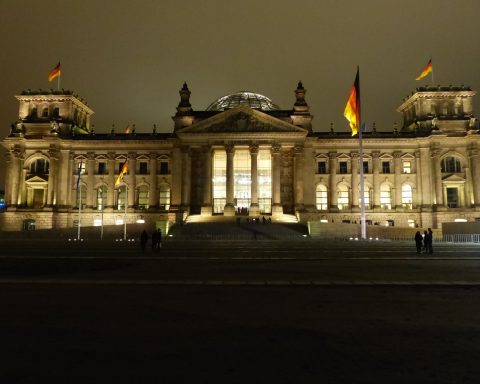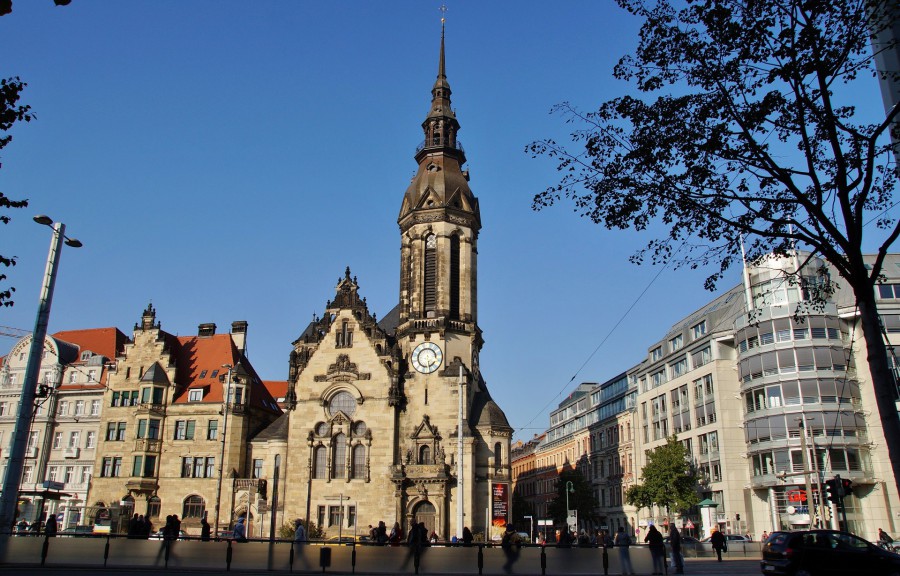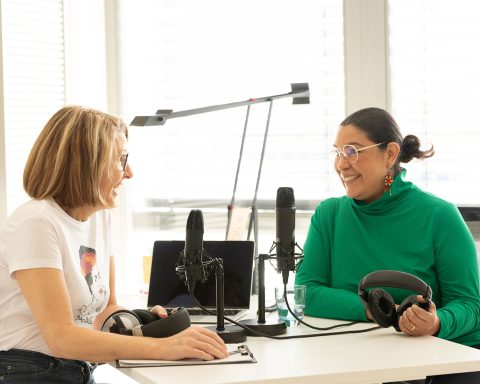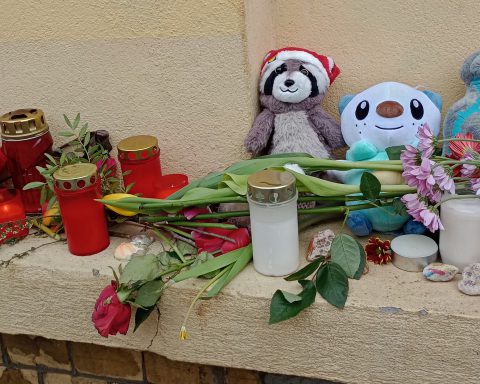Edited 27.03.2021 / Updated 17.02.2023
This article has been edited for clarity to illustrate the current selection process more accurately. This is a personal account of Andrea’s experience with and point of view on the Leipzig Migrants’ Council. For a full overview of the Council’s selection process, election dynamics and details, please have a look at our other article: Voting in Leipzig Migrants’ Council selection process
As a foreigner, most of us are used to not having a voice in the country we chose to live in, or the country that took us in. Sometimes it‘s the language that scares us off, sometimes it‘s the different culture, sometimes is just the uncertainty not to know how long this adventure will last. The feeling that our voice does not matter could be one of the reasons why most migrants don‘t get involved in local politics or even vote at the local elections (those who can!). And this could be one of the reasons why it is so important for us foreigners, migrants, and refugees to vote for the Migrants’ Council: to have a voice we did not believe we had so far.
Why is it so important to vote in this election?
It really doesn‘t matter if you are one of those people who follow election day passionately or one of those who say you don’t read the news because news is depressing: you have to vote. Why? Because politics matter. The fact that we have a Migrants’ Council we finally can vote for is just one proof of it.
As some of you may already know, this is the first time foreign citizens are allowed to vote for the Migrants’ Council. How come? You’ll find the answer to this question in the Migrants’ Council itself.
One of the most important goals for the soon-to-be-former members of the Migrants’ Council was to achieve that all citizens with migratory backgrounds could determine who will represent them. And guess what? They made it.
Before 2021, representatives of the Migrants’ Council were chosen by the City of Leipzig through an open call, which excludes a lot of people who could be candidates for this election since the admission requirements were set by Leipzig’s Administration. Now, even though just 10 of the 22 total members of the Migrant’s Council will be elected by Leipzig’s foreign population, this election it’s the first step towards a very basic democratic standard, which is the people‘s will. Migrants now get to decide if a person is qualified or not to represent them. The most voted candidates will be then proposed to the City of Leipzig to form the new Migrants’ Council. Then, the new Migrants’ Council will be constituted by ten candidates from the online election; six members chosen directly from the political parties present in the City Council and the six remaining members will be chosen by the City Council through an open call.
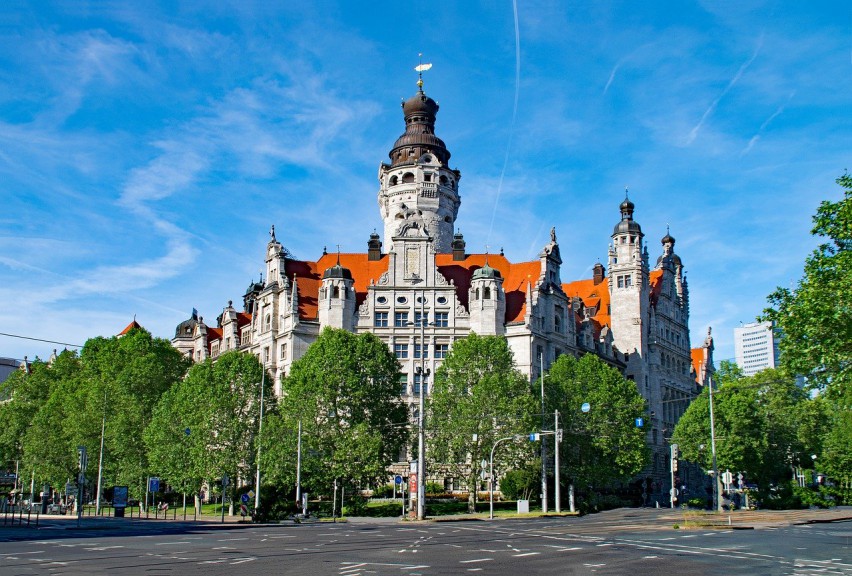
Without the determination of the former members of this council, we wouldn‘t even be talking about the elections. And that‘s one of the reasons why politics matter. One of the reasons for you to vote.
Why is it so important that migrants choose who will represent them?
There are many tasks and duties the Council has to fulfill. Above all, the Migrants’ Advisory Council is an advisory board of the City of Leipzig. As it is stated on its website, the Council brings specific views and suggestions of migrants into local political discussions and participates in the decisions of the City Council that affect the interests of migrants.
Therefore, shouldn‘t we, migrants of Leipzig, be able to choose who will represent us and speak for us in the discussion of matters such as the impact of the German educational system on migrants, integration courses, or the challenges multilingual families face, among many other issues? Choose carefully! Because the people you vote for will make decisions that could affect your current and future life in Leipzig.
Leipzig vs Dresden
If this is the first time you hear about the Migrants’ Council, maybe you should know that Leipzig isn‘t the only city that has one. In Saxony alone, there is another Migrants’ Advisory Council: The Integration and Foreigners Advisory Council (Integrations- und Ausländerbeirat) in Dresden.
Both the Integration and Foreigners Advisory Council of Dresden and the Migrants’ Advisory Council of Leipzig have the right to be heard and to speak (Anhörungs- und Rederecht) on all issues directly affecting foreigners.
Besides, the meetings of both advisory boards are public, which means that anybody can just turn up in one of the meetings and hear what the council has to say. Up to this point, both councils were very similar, but what about the differences?
As mentioned before, until this year, 16 members of Leipzig‘s Council were elected through an application process (similar to an application for a certain job offer). However, Dresden‘s international population has had the option to vote for some of the members of the Integration and Foreigners Advisory Council since at least 2014, which is pretty impressive, isn‘t it?
Until this year, the Integration and Foreigners Advisory Council in Dresden was the only political entity in Saxony that foreigners (including refugees with a residence permit or tolerance permit) can elect and run for. However, from my point of view, Leipzig‘s Council has an even more impressive characteristic, which is the Council‘s right to request (Antragsrecht).
Right to request (Antragsrecht)
What is the right to request and what does it mean for us migrants? This right means that the Migrants’ Council can propose a motion to, for example, carry out an election for the Migrants’ Council. This motion will be discussed and voted on by all members of the Council. If the majority of the members approve the motion, it will go to the City‘s parliament, where the members of the Migrants’ Council have to defend their idea in front of all political factions in Leipzig. If the motion is approved in parliament, it will become a new reality. This motion would mean change.
As far as I know, Leipzig’s Migrants’ Council is one of the few Migrants’ councils that has this right. The possibility of being more than just a group of advisors, but to be actors and try to change the reality of migrants for the better.
Achievements of the Migrants’ Council
Besides the election itself, Leipzig’s Migrants’ Council has a few other achievements you may not know about: a budget increment for translation and interpreting services (e.g. SprInt) or the creation of a complaints management for residents of asylum shelters and shelters for unaccompanied minor refugees in Leipzig are just a few examples. The Migrants’ Council was also actively involved in the development of the Welcome Center.
In the last few years, they also increased their own capacity with the creation of a job position to finally have a person within the local administration in Leipzig exclusively in charge of the Migrants’ Council.
One last achievement I’d like to mention is the so-called Migrationspolitischestunde (Migration Political Hour): an extraordinary session of the Migrants’ Council in which experts in migration will be invited and, together with the members of the Migrants’ Council and the administration, the goals of the City of Leipzig in matters of migration and integration are discussed.
My personal experience and why I’d like this election to be a success.
Almost one year ago I was searching for voluntary work in the field of Migration and Integration. As a part of this search, I came across the Migrants’ Council. By chance, like most things in life. Back then, a soon-to-be-former member told me everything about the Migrants’ Council and the upcoming election when it wasn’t anything but a project and still far from reality. Of course, this awakened my curiosity.
I wanted to know more about this council and went to one of the sessions, where I could observe how the members discussed the topic of the colonial past of the Leipzig Zoo and its critical examination, as well as the handling of the topic in today’s time.
That was maybe the first time I really realized how important it is to have experts to discuss such topics with the local administration and the multiple actors of the city we migrants live in, because, in my opinion, sometimes they are just too far away from the migrants’ reality.
I thought I’d be following this election as a candidate. In the end, I opted for the voluntary work I didn’t find back then. What I would like to tell you with this is: There are many many different ways to be involved in local politics and to contribute to make this city a place where everybody feels welcome. You just have to find them.



